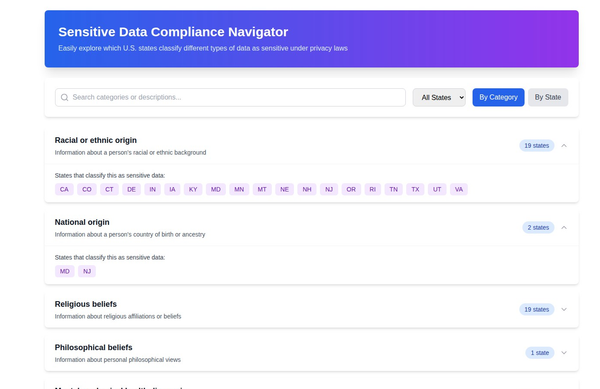A Deep Dive into Meta's World: Privacy, Power, and the Fight for Control

In the ever-evolving digital landscape, Meta (formerly Facebook) stands as a titan, its influence extending far beyond the realm of social media. But with this immense power comes a profound responsibility – one that Meta has often struggled to uphold. The company's relentless pursuit of data, its foray into AI-driven technologies, and its complex relationship with governments raise critical questions about user privacy, freedom of speech, and the very fabric of our digital lives. This article examines these multifaceted issues, drawing on a wealth of sources – from legal documents and investigative reports to firsthand accounts and expert analyses – to shed light on Meta's impact on individuals and society at large.
The Data Dilemma: From Targeted Ads to Biometric Scandals
One of the most contentious aspects of Meta's operations is its insatiable appetite for data. The sources reveal how Meta collects vast amounts of information about its users – from basic demographic details to intricate behavioral patterns – often without their full understanding or consent. This data fuels Meta's targeted advertising machine, generating billions in revenue. But it also raises serious concerns about privacy violations and the potential for misuse.

For example, a 2012 lawsuit exposed Meta's psychological experiments on users, where the company manipulated newsfeeds to study emotional responses. This incident sparked outrage and highlighted the ethical dilemmas of conducting research without explicit consent. More recently, Meta faced a landmark $1.4 billion settlement with Texas for unlawfully capturing biometric data through features like "Tag Suggestions." This case underscored the growing concern over the use of facial recognition technology and the need for stricter regulations.
**Beyond targeted advertising, the sources suggest that Meta's data collection practices extend to tracking user activity across the web, even when not logged into Facebook. This "off-Facebook activity" includes browsing history, app usage, and location data, painting a comprehensive picture of an individual's digital footprint. **
AI's Double-Edged Sword: Innovation Versus Intrusion
Meta's push into artificial intelligence (AI) adds another layer of complexity to the privacy debate. The sources explain how Meta is integrating AI across its platforms – from WhatsApp and Instagram to Messenger and Facebook. While these AI-driven features promise to enhance user experience through personalized recommendations, intelligent replies, and automated content creation, they also raise concerns about data security and the potential for intrusive surveillance.
AI systems thrive on data, and the more data they have access to, the more effectively they can learn, adapt, and predict user behavior. But this data dependence creates opportunities for sensitive personal information to be collected, processed, and potentially exposed. The sources detail how Meta is attempting to address these concerns through initiatives like end-to-end encryption, transparent data practices, and privacy control features. However, experts argue that the complexity of AI makes it difficult for users to fully grasp the implications of their data being used to train these systems.
The Algorithm's Shadow: Child Safety and Content Moderation
The sources highlight a particularly disturbing aspect of Meta's AI – its alleged role in enabling child exploitation. Investigations have revealed that the company's algorithms may be inadvertently creating a marketplace for child sexual abuse material (CSAM) by connecting predators with potential victims. This chilling revelation underscores the urgent need for stronger content moderation measures and a more proactive approach to protecting vulnerable users.
Meta has faced intense scrutiny from lawmakers and advocacy groups over its content moderation practices, particularly regarding its handling of misinformation, hate speech, and politically sensitive content. The sources provide insights into congressional hearings, legal battles, and internal communications that reveal the complexities of balancing free speech with the need to prevent harm.
**Allegations of bias in Meta's content moderation practices add another dimension to the debate, with claims that conservative viewpoints are disproportionately targeted for censorship. While these claims require further investigation, they underscore the need for transparency and accountability in how platforms make decisions about what content to allow or remove. **
A Glimpse into the Future: Smart Glasses and the Metaverse
Meta's ambitions extend beyond social media, with the company investing heavily in futuristic technologies like smart glasses and the metaverse. The sources describe these innovations as potentially groundbreaking, offering unprecedented connectivity and immersive experiences. But they also warn of the privacy implications that come with blurring the lines between our physical and digital selves.
Imagine walking around with a device that's constantly recording and transmitting what you see and hear – your every move, your every conversation captured and analyzed. The sources raise concerns about consent, data collection, and hacking threats, suggesting that these smart glasses could become a powerful tool for surveillance, both by Meta and potentially by malicious actors.
The Power of Collective Action: Shaping a More Ethical Digital World
Meta's vast influence and its complex relationship with data, AI, and government power raise fundamental questions about the future of online privacy and the role of technology in society. While the sources paint a concerning picture, they also offer a glimmer of hope.
Individuals are becoming more aware of the value of their data and are demanding greater control over how it's used. Lawsuits and regulatory actions are holding tech giants accountable for privacy violations and pushing for stronger protections. Alternative platforms are emerging that prioritize privacy and ethical data use, offering users a choice beyond the Meta ecosystem.
The sources emphasize the power of collective action. By educating ourselves, adjusting privacy settings, supporting organizations that advocate for digital rights, and engaging in open dialogue about these issues, we can collectively shape a more ethical and equitable digital future. The fight for online privacy is not just about protecting personal information; it's about safeguarding our freedom, our autonomy, and our right to exist in the digital realm without being exploited or manipulated.






